
“Print Out The Internet? Yes Ma’am”: Employee Shows Boss Just How Stupid Her Request Is By Following It To The Letter
There are demanding bosses and then there are unreasonable jerks. Unfortunately, Reddit user u/SignSavings9270 had to work for the latter.
Recently, they shared a particularly bitter experience on the subreddit r/MaliciousCompliance. A decade ago, when they were a technical writer for the government, their superior asked for a printed version of the entire employee handbook.
Then, the lady wasn’t satisfied with the fact that some sources were only referenced as URLs and demanded the actual websites be printed out too. u/SignSavings9270 obliged and brought 30,000 pages to her office.
This boss wanted the entire employee handbook printed, including the websites that were linked in it
Image credits: Mahrous Houses (not the actual photo)
And got exactly what she asked for — in 30,000 pages
Image credits: Iakobchuk (not the actual photo)
Image credits: seventyfourimages (not the actual photo)
Image credits: SignSavings9270
We got in touch with u/SignSavings9270 and they agreed to have a little chat with us about the whole ordeal. When asked about their time in the position, the Redditor told Bored Panda, “I loved my job and I had the same job for 30 years in the same office with mostly the same people around me, but with a revolving door of supervisors. Unusual now, I know. But I worked with an incredible group of people in the government.”
They went on to describe their colleagues as “brilliant and dedicated people who really cared about what they did and why they did it.”
“We were public servants in the best way possible. When I started, there were dedicated writers, scientists, and other professionals who would often work a lot of unpaid overtime, etc. Those traditions continued through my tenure.”
u/SignSavings9270 were content and they knew they were making a difference. “I was a bridge, a translator from the science to the decision-making. I loved the content of my job.”
But that doesn’t mean that everything was perfect. The Redditor also shared some of the issues they faced at work, noting that “the problems were the same that I have heard of in other jobs, where the rules just don’t make sense sometimes.”
The organization’s structure exacerbated some of these issues, as their boss did not know or understand what exactly u/SignSavings9270 did and whether or not they were good at it.
“There would always be some things that just did not seem to be priorities for me that were priorities for my boss,” they said. “Usually, I could explain why we did something the way we did and it was ok. Or someone higher up the food chain would explain to my boss why what I did was valuable and not to mess with me. But this particular little tiff had gotten personal for both of us.”
“The employee handbook had been a little pet project of mine on the side for a long time. My boss wanted to have the thrill of handing a huge notebook to new employees as a welcome to the government moment, while I wanted to ensure all employees had quick access to exactly the information they needed when they needed it. So we had a difference of opinion,” the Redditor explained.
This “little war” had been going on between them for over a year before she ordered them to print everything.
“This was a low-priority project, to be done in those odd moments when waiting for more important work to hit my desk (like if all of my 10 real reports were out for review at the same time). So ordering on a low-priority project with a “right now” attitude was very difficult for me to swallow.”
There are various reasons why people become such lousy managers
Image credits: Andrea Piacquadio (not the actual photo)
An overly demanding boss sucks because they don’t empathize or understand what’s required for you to deliver results, and will keep pushing you until you take action, said Lynn Taylor, a national workplace expert and author of Tame Your Terrible Office Tyrant; How to Manage Childish Boss Behavior and Thrive in Your Job.
“Demanding bosses give you unreasonable deadlines, are not in tune with the hours it takes to meet objectives, won’t take the time to find out in advance what’s reasonable, can display little interest in your well-being, have trouble prioritizing, and give you little recognition when you do complete Herculean tasks,” she said. “They may not take the time to see if you have the tools or information you need to accomplish your assignments, and can make themselves unapproachable so that your only option seems to be: just do it.”
Why do our superiors act this way? Usually, because of the desire to control everything, fear for his or her own job status, a yearning for perfection, or a sense of entitlement, Taylor explained.
“Whatever the root cause, these types of bosses are often like unruly toddlers who act as if the world really does revolve around them. Asking nicely doesn’t always occur to these bosses, and so the onus is on you to break your silence and be the voice of reason.”
And sadly, they’re abundant
Image credits: Elisa Ventur (not the actual photo)
A Society for Human Resource Management (SHRM) survey affirms the age-old saying that employees leave managers, not companies.
Researchers examined American workers’ perspectives on how ill—or well-equipped—their supervisor(s) were to manage people, the most important skills managers should develop, and how leaders could improve their own performance.
According to the findings:
- 84 percent of American workers say poorly trained managers create a lot of unnecessary work and stress;
- 57 percent say managers in their workplace could benefit from training on how to be a better people manager;
- 50 percent feel their own performance would improve if their direct supervisor received additional training in people management;
- The top five skills managers could improve, according to American workers, were: communicating effectively (41 percent), developing and training the team (38 percent), managing time and delegating (37 percent), cultivating a positive and inclusive team culture (35 percent), and managing team performance (35 percent).
A lot of which u/SignSavings9270’s boss lacked!
“I am sure, looking back, that I was probably a problem employee for her because I pretty much did what my clients and my team wanted rather than [what made] my boss look good,” the Redditor said. “I never saw my boss as my customer. Rather, I saw my team and the people we served as my customers.”
After everything was over, there was some informal fallout, too. “The story got around and became a cautionary tale. It became much more acceptable to ask for clarification and to explain the consequences of an action and to CC folks higher up as needed,” u/SignSavings9270 said. “And we actively found ways not to print whenever possible. So many more reports went out on CDs or just on the internet/intranet rather than to a printer.”
As the story went viral, its author answered the questions that arose in the discussion
It really resonated with people, and many suggested alternative actions the original poster could’ve taken
Some also shared their own similar stories
Don’t know which is funnier, the fake story, or the people that believe this is true
Definitely fake. Former federal employee here who sees gaping holes in this story.
Load More Replies...I have found the bosses rise to the level of their incompetence. (trueizem)
yeah, https://en.wikipedia.org/wiki/Peter_principle
Load More Replies...Don’t know which is funnier, the fake story, or the people that believe this is true
Definitely fake. Former federal employee here who sees gaping holes in this story.
Load More Replies...I have found the bosses rise to the level of their incompetence. (trueizem)
yeah, https://en.wikipedia.org/wiki/Peter_principle
Load More Replies...
 Dark Mode
Dark Mode 

 No fees, cancel anytime
No fees, cancel anytime 







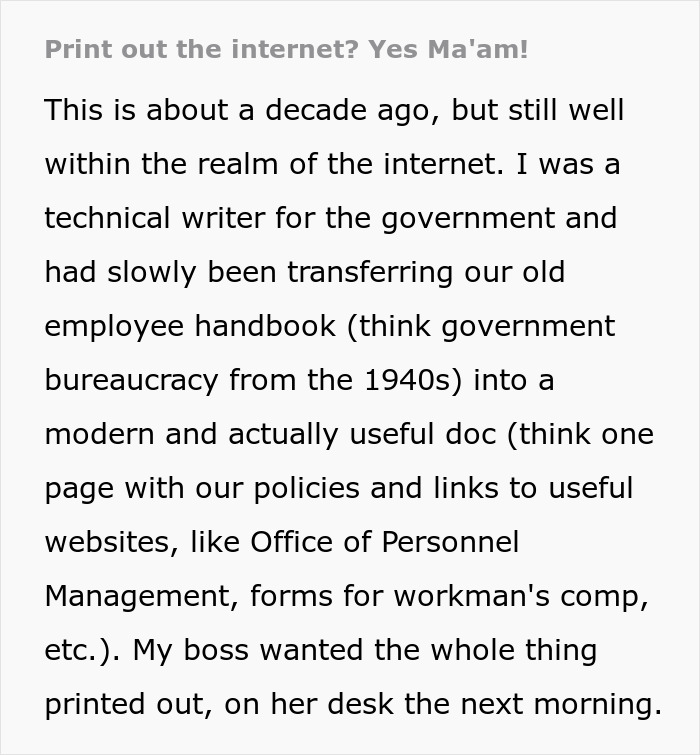
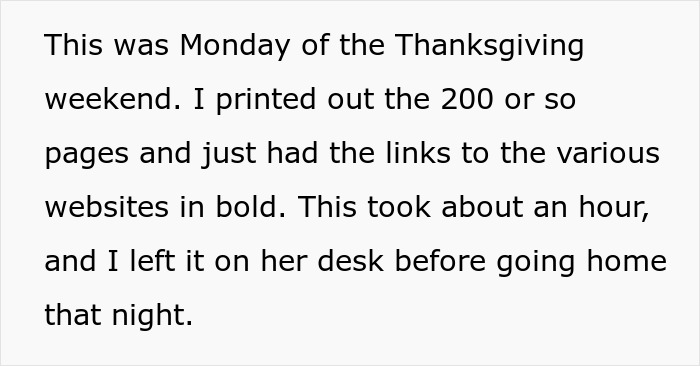
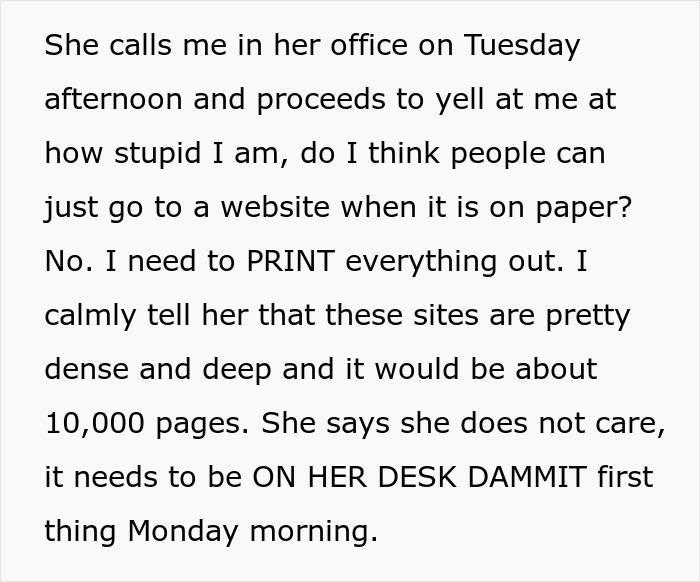

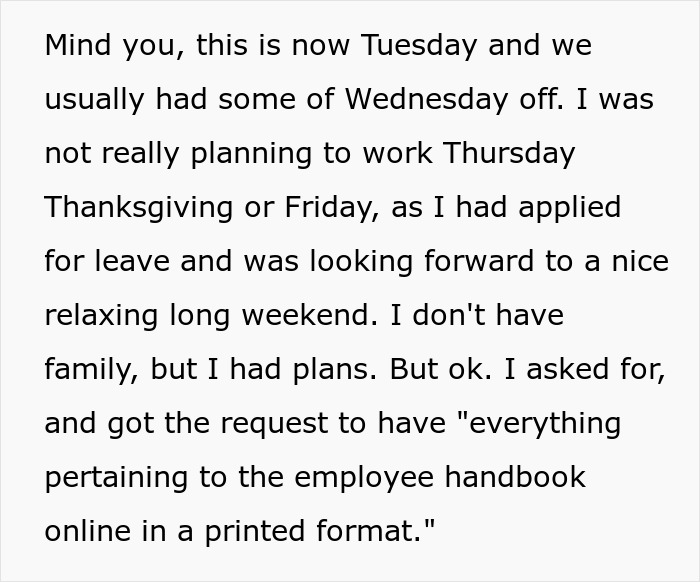
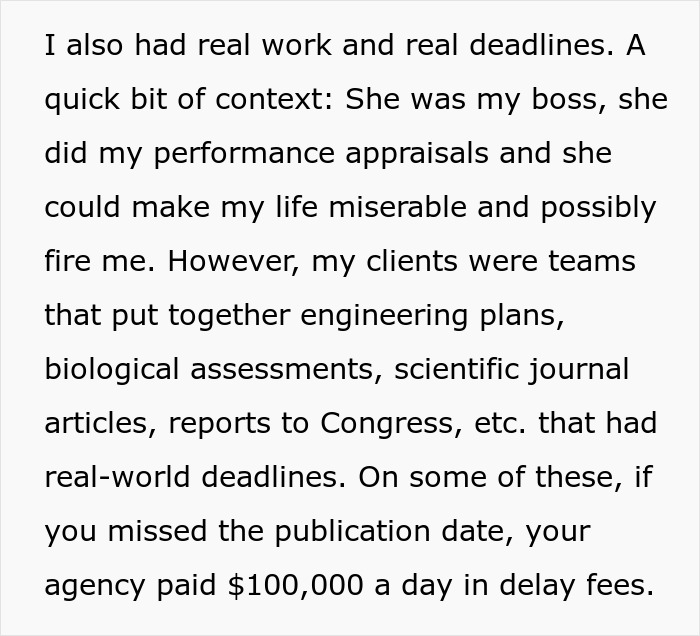
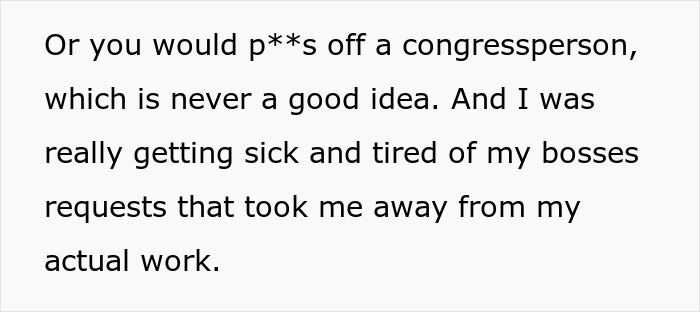
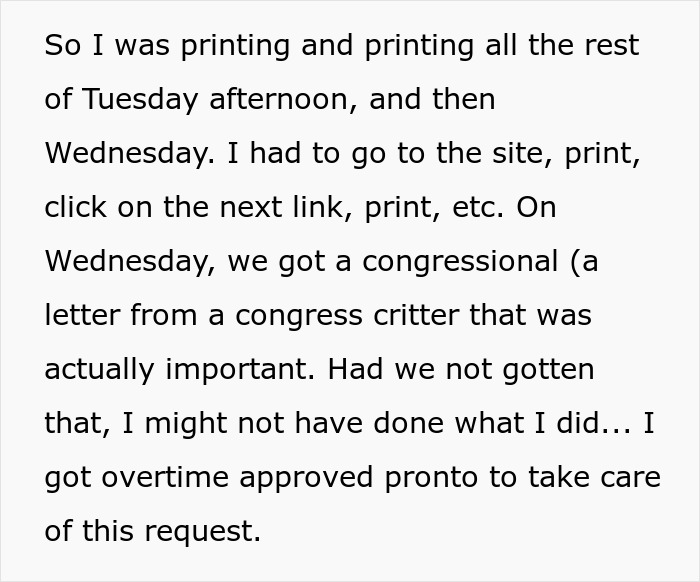
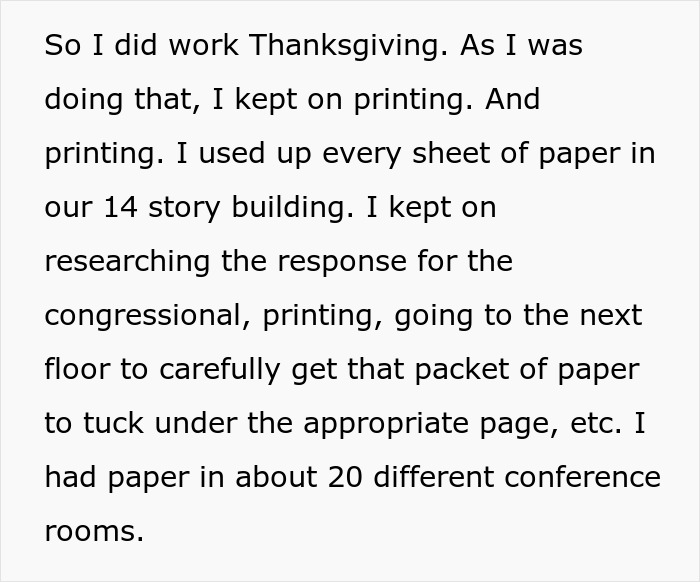

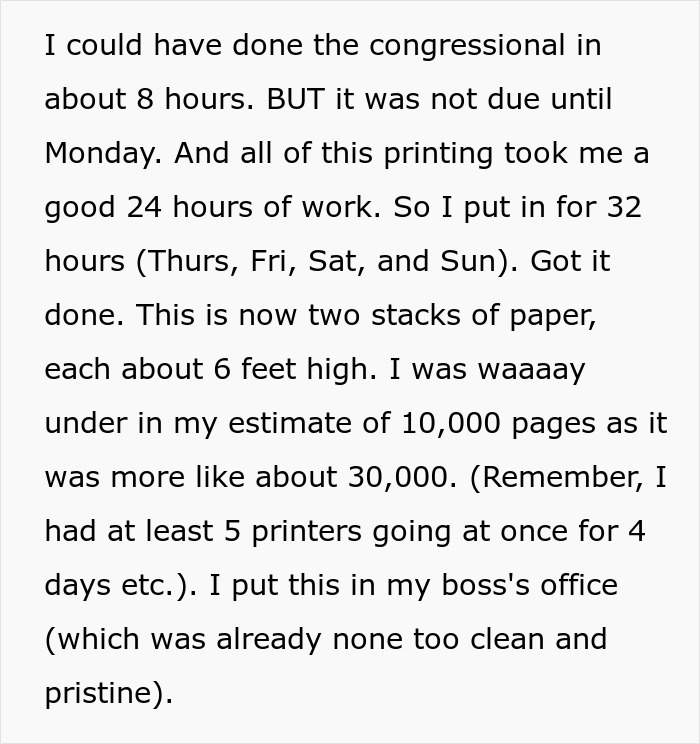
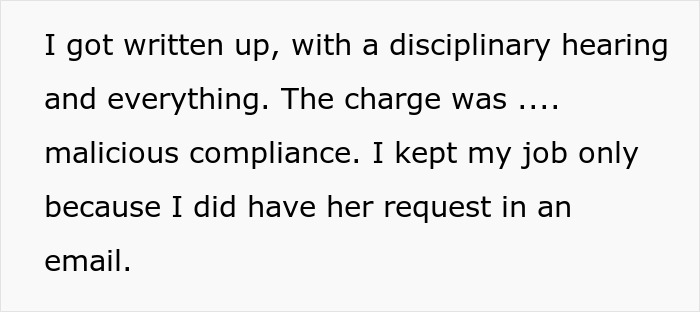





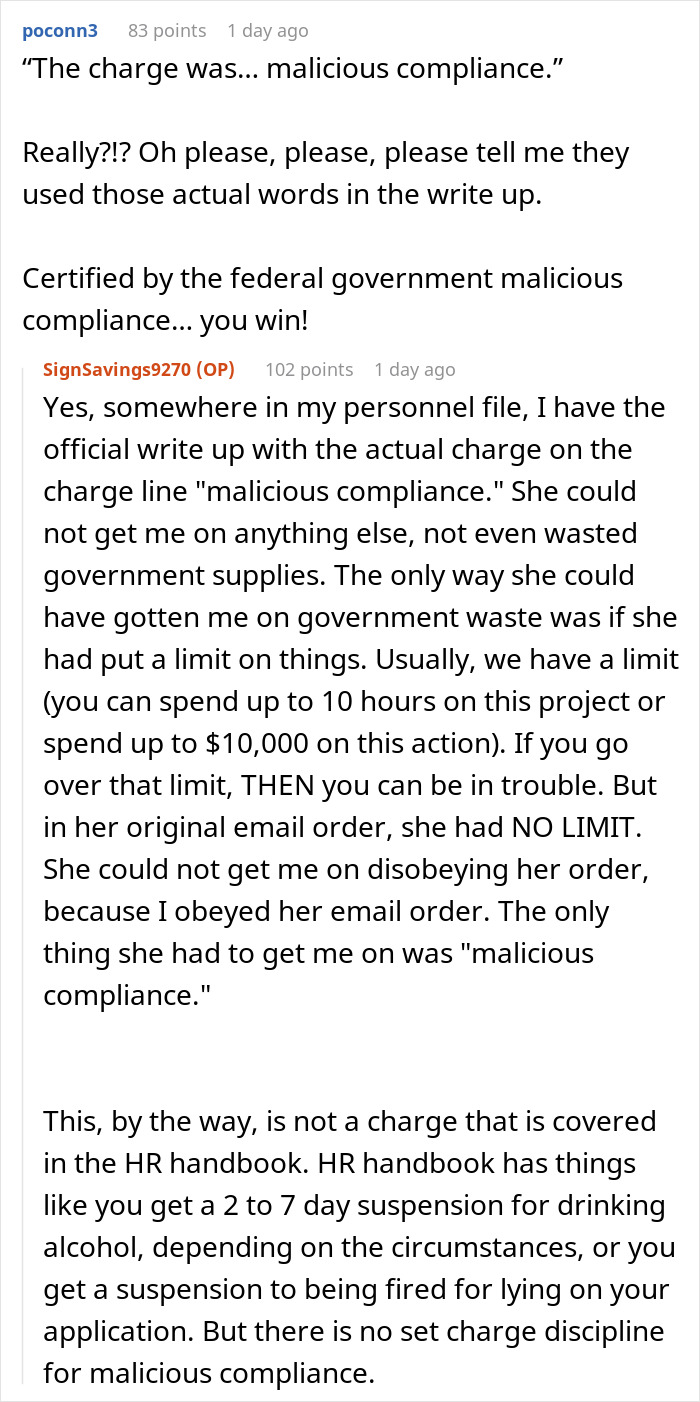

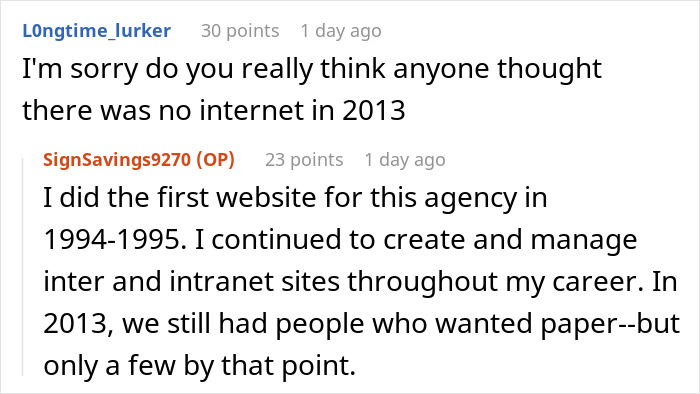



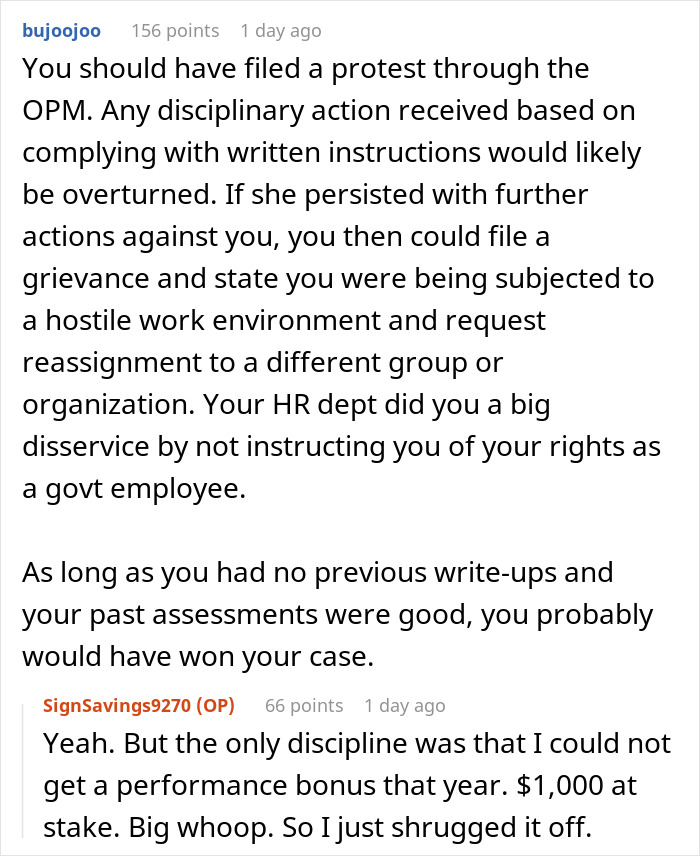
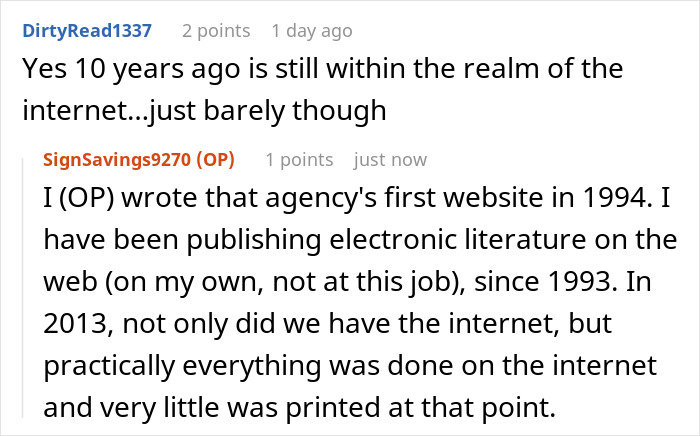
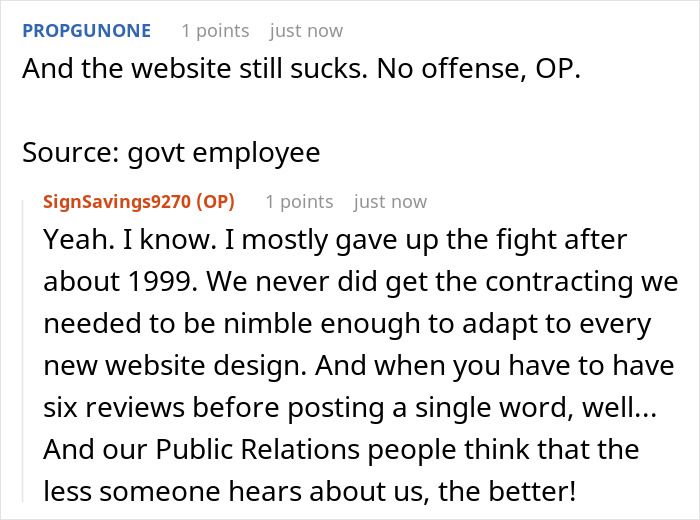

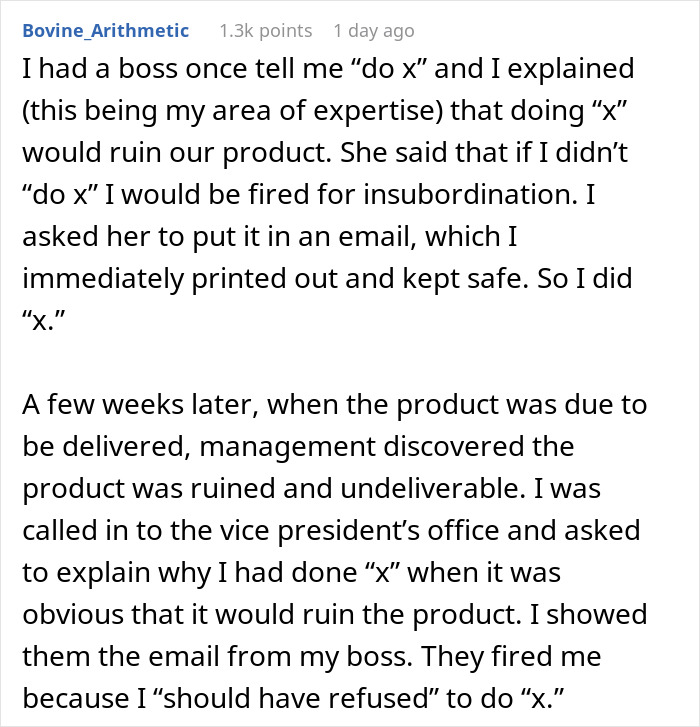
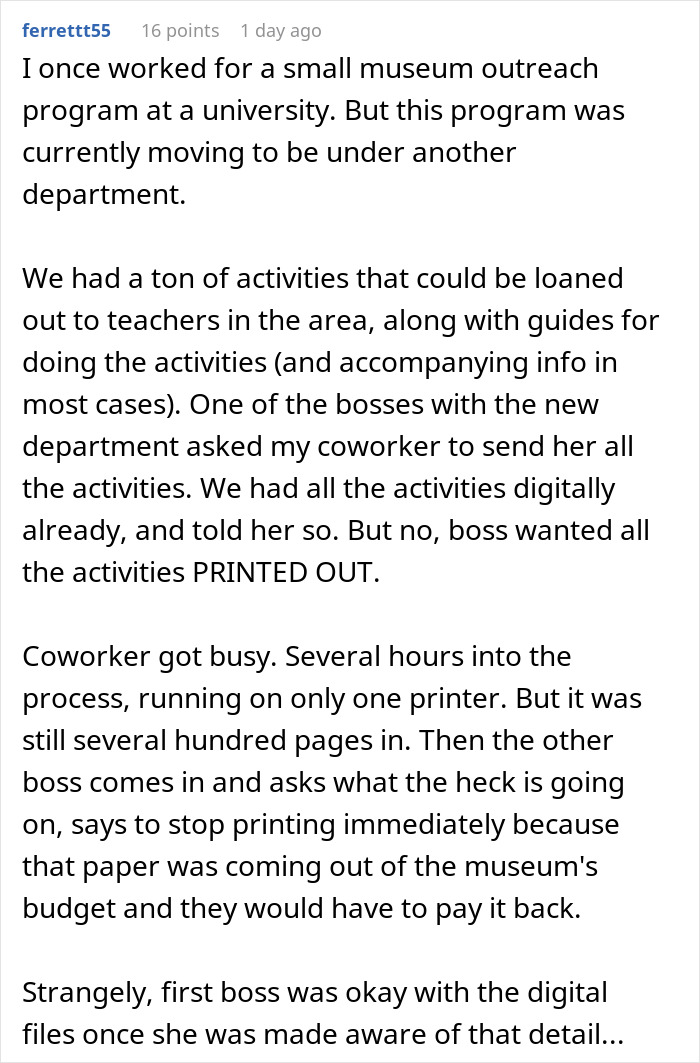
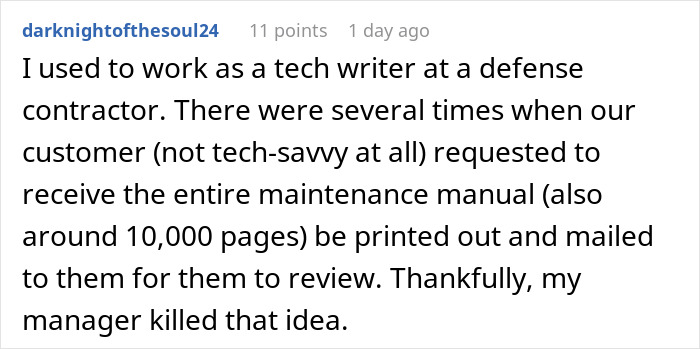












































71
18